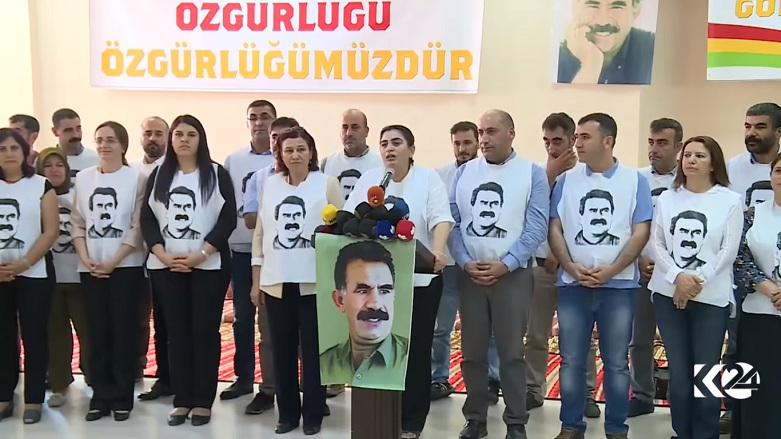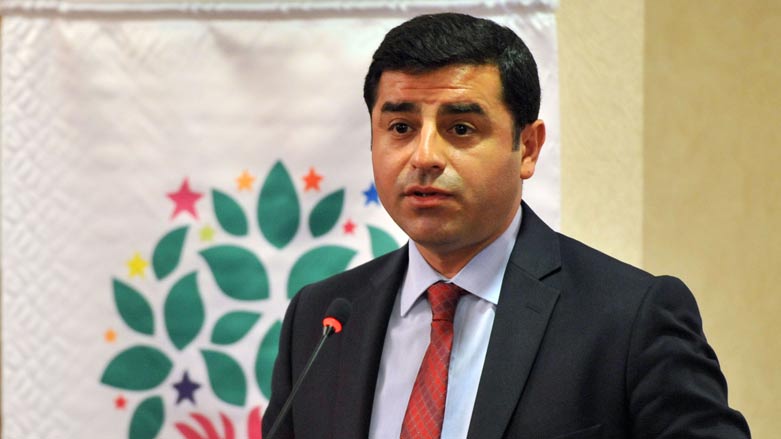Kurds on hunger strike, protesting Ocalan’s communication ban

ERBIL, Kurdistan Region (Kurdistan24) – On Monday, fifty Kurdish figures embarked on a hunger strike in the de facto Kurdish capital of Diyarbakir, Turkey, to protest the communication ban on the PKK-jailed leader Abdullah Ocalan.
Politicians, activists, and artists have started to refuse food. They are based in the pro-Kurdish Democratic Regions Party (DBP) headquarters in Kurdistan of Turkey (Bakur).
The hunger strike is to last for an unspecified period of time.
The Turkish government has been preventing Ocalan's lawyer and family to visit Imrali Island where this Kurdish leader has been imprisoned since 1999.
Kurds have been concerned about Ocalan's health. The protestors previously warned that they would launch a hunger strike if Ocalan’s well-being could not be independently confirmed by September 5.
The members are the representative from the Peoples’ Democratic Party (HDP), the Democratic Regions Party (DBP), Peoples’ Democratic Congress (HDK), Free Women’s Congress (KJA) and the Democratic Society Congress (DTK).
They are calling on their government to end Ocalan’s 17 years of isolation.
On Saturday also about 30,000 Kurdish supporters in Cologn demonstrated peacefully, chanting in German, "Neither military coup, nor civilian dictatorship."
The co-leader of DBP Sebahat Tuncel stated in a statement that since Turkey’s failed military coup attempt in July 15, they have had no information about the health condition of Ocalan.
On Friday, Selahattin Demirtas, the co-chair of the Peoples’ Democratic Party (HDP) stated that during the night of the military coup attempt, fighting took place on the Imrali Island.
He mentioned during that night a Turkish military helicopter with some soldiers attempted to land on the island where clashes broke out, but they do not have any information about the aftermath.
Demirtas noted the soldiers were the ones who fled to Greece that same night. After the failed coup, a Turkish helicopter filled with eight pro-coup soldiers fled to Greece seeking asylum.
So far, the soldiers have not been handed over to Ankara despite continuous requests.
Recently, Turkish Justice Minister Bekir Bozdag stated on a TV program that there is nothing wrong with Ocalan’s health or safety.
Ocalan, also known by his nickname “Apo,” meaning uncle, was born on April 4, 1948. An influential leader who is often compared with Nelson Mandela, he is one of the founders of the Kurdistan Workers' Party (PKK).
Editing by Ava Homa

